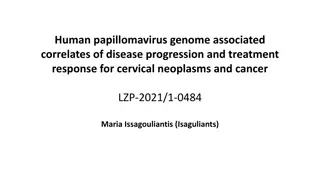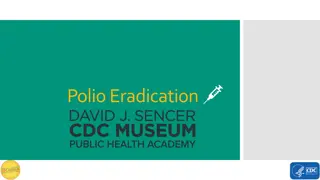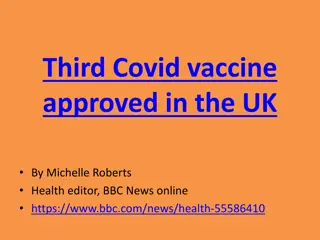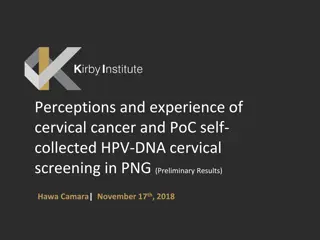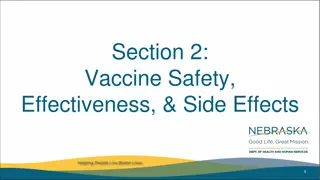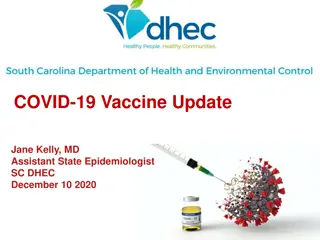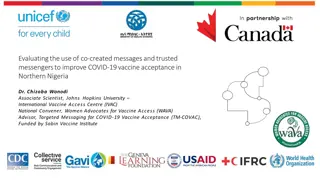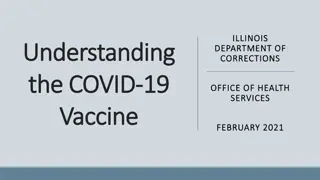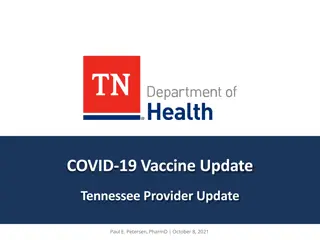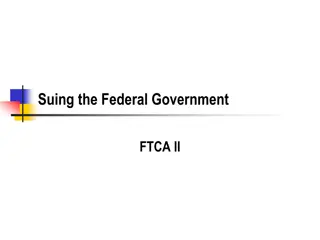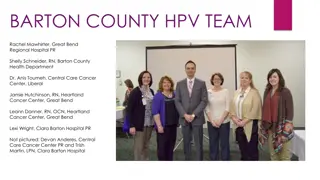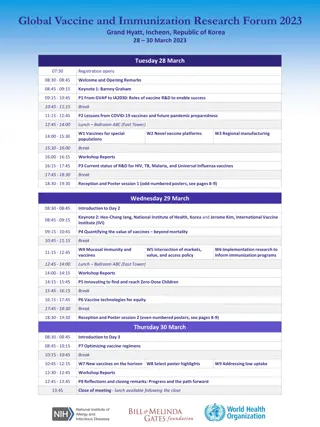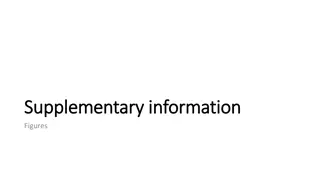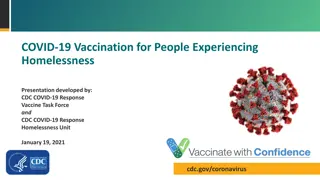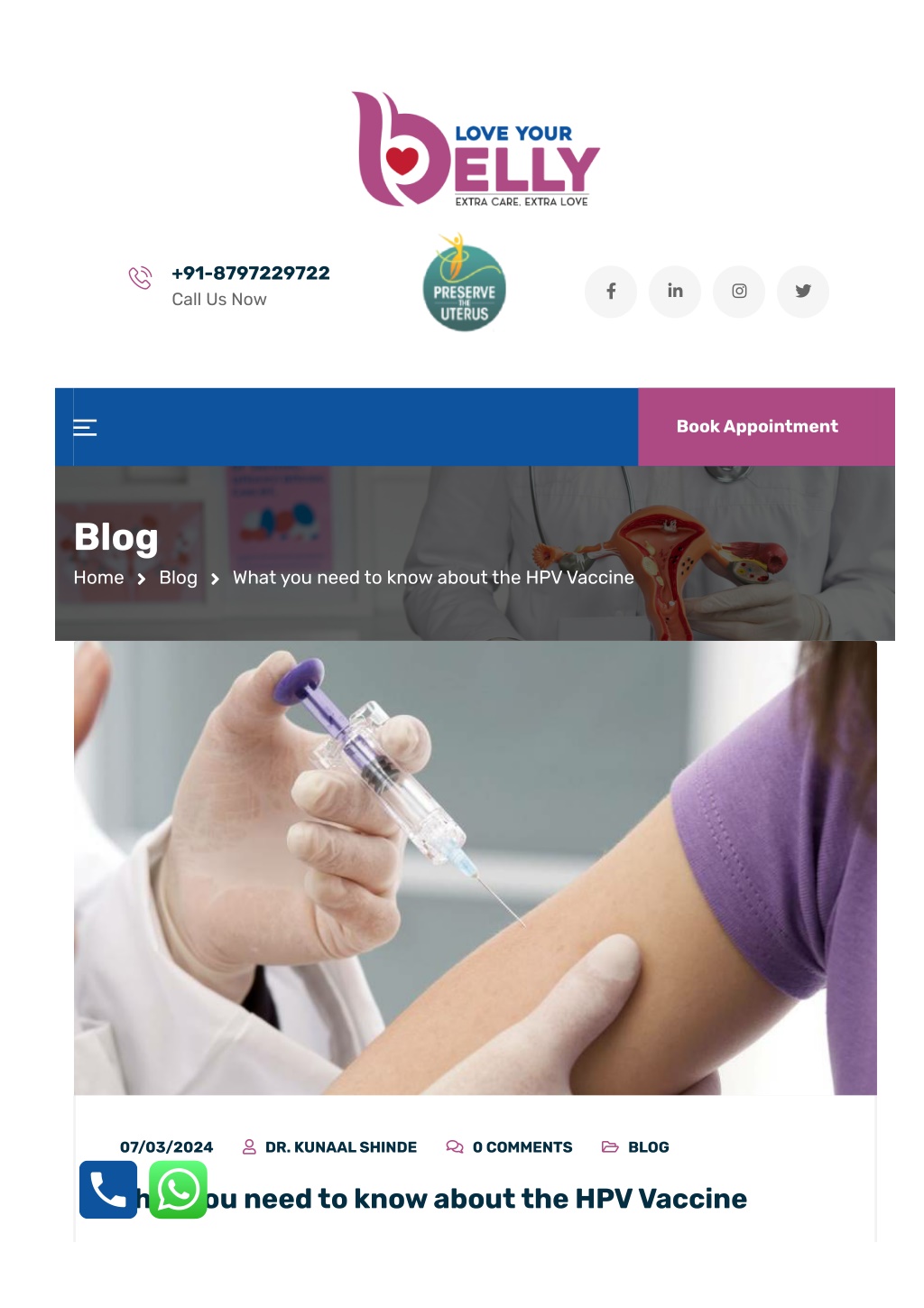
What you need to know about the HPV Vaccine
Globally, cervical cancer is the fourth most common cancer in women, with 6,04,000 new cases in 2020. Women living with HIV are 6 times more likely to develop cervical cancer, compared to the general population, and an estimated 5% of all cervical cancer cases are attributable to HIV. The contribution of HIV to cervical cancer disproportionately affects younger women, and as a result, 20% of children who lose their mother to cancer do so due to cervical cancer. If you have concerns about your cervical cancer, itu2019s best to consult with Dr. Kunaal Shine is offers Cervical Cancer Treatment in Pun
Download Presentation

Please find below an Image/Link to download the presentation.
The content on the website is provided AS IS for your information and personal use only. It may not be sold, licensed, or shared on other websites without obtaining consent from the author. If you encounter any issues during the download, it is possible that the publisher has removed the file from their server.
You are allowed to download the files provided on this website for personal or commercial use, subject to the condition that they are used lawfully. All files are the property of their respective owners.
The content on the website is provided AS IS for your information and personal use only. It may not be sold, licensed, or shared on other websites without obtaining consent from the author.
E N D
Presentation Transcript
+91-8797229722 Call Us Now Book Appointment Blog Home Blog What you need to know about the HPV Vaccine DR. KUNAAL SHINDE 0 COMMENTS BLOG 07/03/2024 What you need to know about the HPV Vaccine
Globally, cervical cancer is the fourth most common cancer in women, with 6,04,000 new cases in 2020. Women living with HIV are 6 times more likely to develop cervical cancer, compared to the general population, and an estimated 5% of all cervical cancer cases are attributable to HIV. The contribution of HIV to cervical cancer disproportionately a?ects younger women, and as a result, 20% of children who lose their mother to cancer do so due to cervical cancer. If you have concerns about your cervical cancer, it s best to consult with Dr. Kunaal Shine is o?ers Cervical Cancer Treatment in Pune and can assess your risk factors. Understanding HPV: HPV is a group of more than 200 related viruses, of which some can lead to cervical cancer. HPV is extremely common, with most sexually active individuals contracting it at some point in their lives. While most HPV infections clear up on their own without causing any harm, persistent infection with certain high-risk types can lead to cervical cancer and other cancers of the genital and oropharyngeal areas. Bene?ts of the HPV Vaccine: Immunizations are safe and e?ective and have successfully reduced the transmission of many deadly diseases. The CDC (Centers for Disease Control and Prevention) states the HPV vaccine protects against infections that can lead to HPV-related cancers and abnormal cells that can lead to cancer (precancers), as well as genital warts. Symptoms of Cervical Cancer: Dr. Kunaal Shinde states that early-stage cervical cancer is mostly asymptomatic. some of the early signs and symptoms include : Abnormal vaginal bleeding during intercourse Bleeding in between periods Postmenstrual bleeding Abnormal vaginal discharge which may or may not be foul smelling
What cancer does HPV cause? HPV causes 1 in 20 cancers worldwide. Almost all cervical cancers (99%) are caused by high-risk types of HPV infection. The HPV virus also causes 5 out of 10 vulval cancers 7 out of 10 vaginal cancers 9 out of 10 HPV-related anal cancers 9 out of 10 incidences of genital warts HPV also causes cancers of the mouth, anus, and penis. Risk factors for Cervical Cancer: Multiple sexual partners Early sexual activity HPV infection Other infection Weakened immune system: increases chances of persistent HPV and thus chance of developing cervical cancer Smoking Prevention of Cervical Cancer: Being vaccinated at age 9 14 years is a very e?ective way to prevent HPV infection, cervical cancer, and other HPV-related cancers. Screening from the age of 30 (25 years in women living with HIV) can detect cervical disease, which when treated, also prevents cervical cancer. At any age with symptoms or concerns, early detection followed by prompt quality treatment can cure cervical cancer. How many doses to be given?
If vaccination is started before 15 years of age only 2 doses are recommended (0, 6-12 months). If vaccination is started after 15 years of age 3 doses (0, 1-2, 6 months) are recommended. Side e?ects of the vaccine: Mild problems include pain, redness, swelling, and itching at the injection site. Fainting has been reported among adolescents who receive the HPV vaccine (and other recommended vaccines as well). Dr. Kunaal Shinde recommended that the vaccine should be given in a sitting position and remain seated for 15 20 minutes after receiving the vaccine. Early detection, diagnosis, and treatment of cervical cancer: Cervical cancer can be cured if diagnosed and treated at an early stage of disease. Recognizing symptoms and seeking medical advice to address any concerns is a critical step. Women should see a Gyneac Cancer Specialist in Pune if they notice: unusual bleeding between periods, after menopause, or after sexual intercourse increased or foul-smelling vaginal discharge symptoms like persistent pain in the back, legs, or pelvis weight loss, fatigue, and loss of appetite vaginal discomfort swelling in the legs What can you do to protect yourself from cervical cancer if you're not in the recommended vaccine age group? As HPV spreads through sexual contact to protect yourself from HPV, use a condom every time you have sex. In addition, avoid smoking. Smoking raises the risk of cervical cancer. Additionally, screening can detect cervical cancer in the
precancerous stage. so undergo regular screening after the age of 21 years. The HPV vaccine is CANCER PREVENTION. As a Gyneac Cancer Specialist in Pune, Dr. Shinde specializes in the diagnosis and treatment of gynecologic cancers, including cervical cancer. The more young people who get the HPV vaccine and women who get routinely screened for cervical cancers, the better we can control the spread of HPV infection. Protect your future get the HPV vaccine. Please contact Dr. Kunaal Shinde with any queries you may have regarding HPV vaccine or cervical cancer. HPV vaccination is our best defense in preventing HPV-related cancers. PREV POST All you Need to Know about PCOS RECENT POSTS What you need to know about the HPV Vacc Mar 7, 2024 All you Need to Know about PCOS Feb 27, 2024 Understanding Ectopic Pregnancy Symp Feb 13, 2024 Importance of Regular Monitoring in High Jan 19, 2024
The Importance of Regular Pap Smears in Jan 10, 2024 The Importance of Regular Gynecological Dec 27, 2023 Robotic Surgery for Recurrent Gynecologi Dec 6, 2023 Managing Stress During Your Laparoscopic Nov 23, 2023 How to Deal with Pelvic Pain Other than Oct 30, 2023 Advances in Laparoscopic and Robotic Sur Oct 23, 2023 Dr. Todkkar Multispeciality Hospital, Baner Gynaec Oncology Cervical Cancer For Appointments: +91-8797229722 | For Ovarian Cancer Emergency: +91-7507351235 Uterine Cancer dr.kunaal.shinde@gmail.com Fallopian Tube Cancer Vulvar Cancer Mon-Fri: 5:30 PM - 7:30 PM, Sat: 12:00 Pm - 5:00 PM & Sun: Closed.
Laparoscopic Surgery Uterus Removal Laparoscopic Surgery ( Myomectomy laparoscopic hysterectomy ) Lap Tubal Laparoscopic Sling Recanalisation Surgery Lap Cerclage Lap Surgery for uterine Anomalies Lap Surgery for Lap Surgery for Ectopic Pregnancy Endometrisis Diagnostic Hystero Laparoscopy Copyright 2024 Dr. Kunaal Shinde | All rights reserved.


